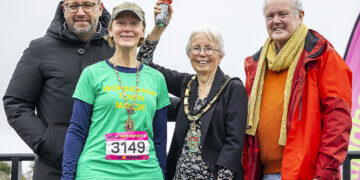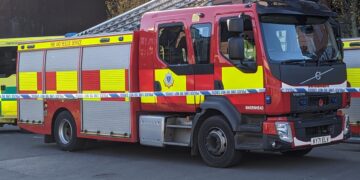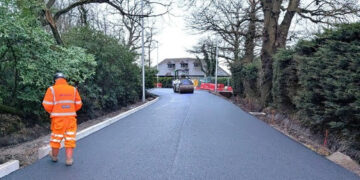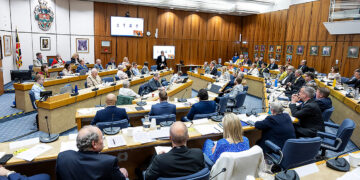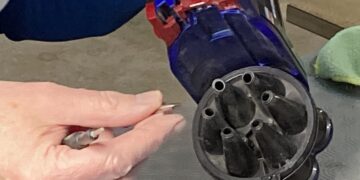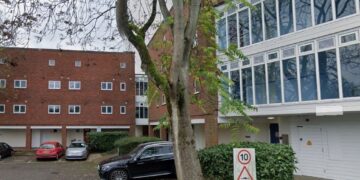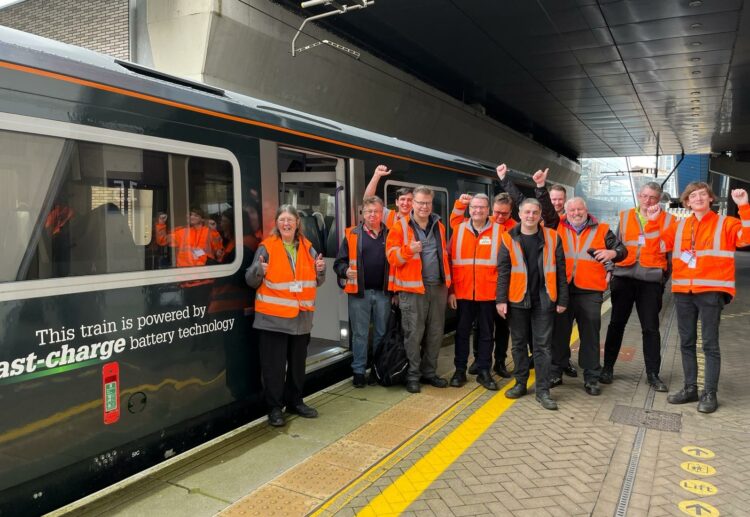GREAT Western Railway has marked another significant milestone with one of its battery-powered trains.
It follows the trial of their FastCharge battery on Friday, February 16, when results suggested that it could break the record for distance travelled by battery power alone without recharging.
It also comes days after breaking the record on Wednesday, when it travelled 86 miles without recharge or relying on other means of power.
The engine then completed a 70-mile journey from Long Marston to Reading Train Care Depot using just 45% of its battery capacity.
GWR engineers estimate that this means it could travel as much as 120 miles on a single charge.
The trial saw the train overtake the previous record set by a Stadler Class 777 in 2022, which saw that train travel around 84 miles on battery power alone.
The train is staying in Reading to undergo compatibility testing and checks for future maintenance and servicing.

The FastCharge technology which was being trialled has been designed to tackle the issues posed by battery-powered trains, reducing the need for diesel traction engines as part of the rail industry’s target to hit net-zero carbon emissions by 2050.
GWR estimates that
Battery-powered trains are typically constrained by their range, meaning their implementation has not been possible until now.
The use of such engines would also negate the need for overhead electric lines, which are expensive to maintain and time-consuming to install.
Now the technology is set to undergo a real-world trial for the first time in the spring, where tests will see the train charge for just three and a half minutes as part of a journey from West Ealing along the Greenford branch line.
The use of battery engines could reduce GWR’s CO2e emissions by more than 1,700 tonnes a year.
The developments in electric train engines comes after GWR signed a deal with Vivarail to trial the new technology in February 2022.
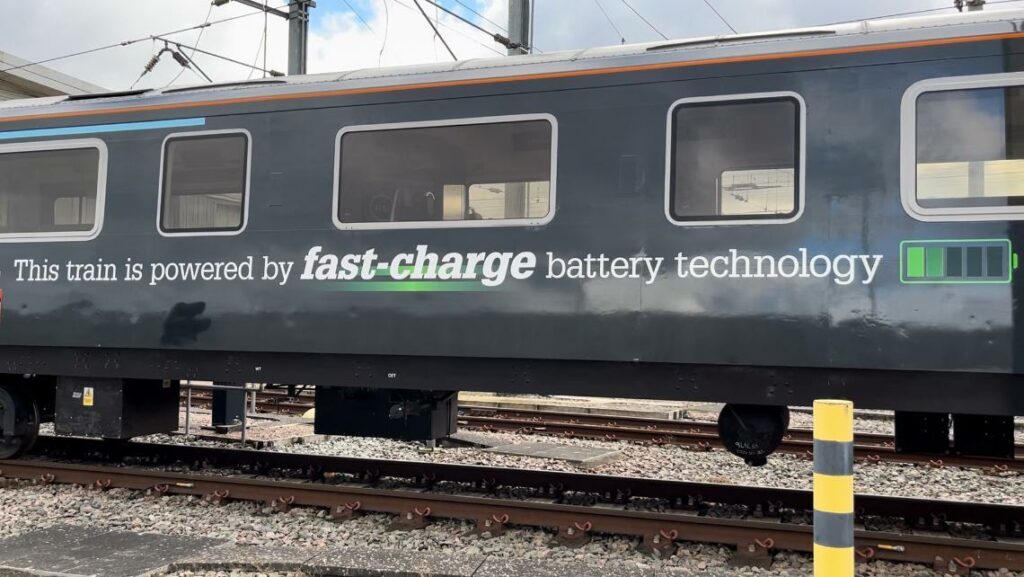
The rail operator then bought designs, rolling stock, and equipment related to the FastCharge technology after Vivarail went into administration in December of that year.
GWR Engineering Director Dr Simon Green said of the FastCharge engine’s feat: “We were delighted by how the battery train performed today and during its series of test runs.
“In fact, it’s fair to say it has surpassed the expectations of our team of engineers.”
He explained: “Achieving these distances gives us great confidence as we press forward with this industry-leading FastCharge technology.
“It’s also worth noting that in reaching the 86 miles on Wednesday, the train was operating in a real-world environment, at speeds of up to 60mph, stopping and starting over a hilly route, with elevation changes of up to 200m.”



